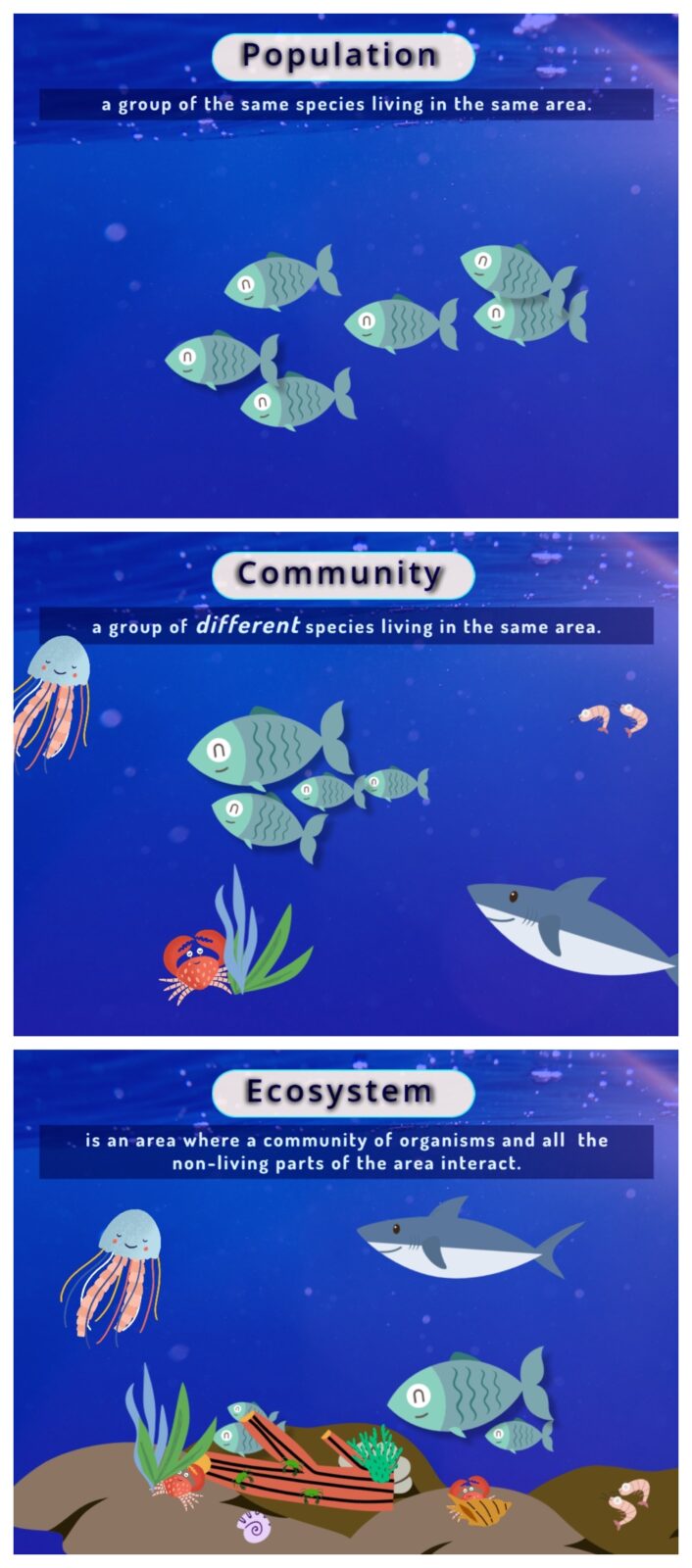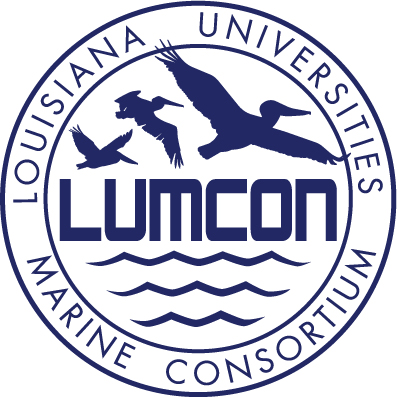Let’s start with learning the meaning of what populations, communities, and ecosystems are. You may already know this, but everyone can benefit from a refresher.

So as you can see populations and communities are made up of either groups of the same species (population) or groups of different species (community) where individuals are interacting with each other. Ecosystems get a bit more complex. Ecosystems are where the organisms interact with each other AND the non-living things in that area. The non-living, or physical factors, of salt marsh ecology are sediments, tides, salinity (amount of salt), air and water temperature, amount of rainfall, and amount of sunlight.
How scientists study ecosystems
Ecology is the study of relationships between living organisms and their physical environment. Ecology is the science that investigates the connections between living things and the world around them. By understanding these relationships we can see the value of ecosystems and how we can best take care of them for future generations. We call the scientists who study ecosystems and the organisms that live in them, ecologists. Ecologists study ecosystems to get a better understanding of ecosystems to help limit environmental damage, conserve species, predict the impacts of natural and human-caused events, and act as advisors so we can all do our part to make this world better for those who come after us.
To study ecosystems ecologists will use both observational and experimental science. Observational science is conducted by observing and recording information about things occurring naturally without the scientist making any changes. An example of observational science would be a scientist counting the number of birds in a certain area over time to see if there are changes over that time. The goal of this would be to count birds in the same area for say, every week for one year. But that’s not all the scientists will do. The scientist will also collect information on things like wind speed and direction, make notes about the type and amount of food in the area, and document any big weather events (freezes, storms, extreme heat, etc.). Over that year, if there are any changes to the number of birds the scientist may better understand what might be the cause or causes for the change. Experimental science is the one we think of the most when someone asks us, “What is science?”. Experimental science is done when the scientist changes something to study the effect of that change. In ecology, experimental science can be used to get an understanding of how an ecosystem might respond to changing conditions. Can you think of how you might study salt marsh plants using experimental science?
The thing to remember is that observational and experimental science projects work hand in hand to answer the questions about not only the Louisiana wetlands ecosystem but all ecosystems and so many other things in all the different areas of science.

